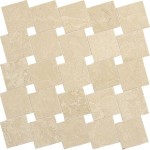When it comes to shower tile, thickness is an important factor to consider. Different thicknesses can affect the look and durability of your tile, so you want to make sure you choose the right one for your needs. In general, thicker tiles are more expensive but offer more durability, while thinner tiles are less expensive and easier to install.
The most common tile thickness is 3/8 inch, which is the standard for most residential applications. This thickness is perfect for walls and floors, providing a good balance between durability and cost. For areas that will receive a lot of traffic, such as a shower, you may want to opt for a thicker tile, such as 1/2 inch. This thickness offers more durability and can handle more wear and tear.
If you are looking for a more luxurious look, you can opt for thicker tiles, such as 3/4 inch or 1 inch. These thicker tiles are more expensive, but they offer a luxurious look and feel that can really elevate the look of your bathroom. They are also more durable and can last longer than thinner tiles.
When choosing a tile thickness, you also want to consider the type of tile you are using. Some tiles are designed to be thinner, such as porcelain or glass, while others are thicker, such as travertine or marble. You want to make sure you choose tiles that are compatible with the thickness you are looking for.
Finally, you want to make sure you choose the right grout for your tile. Grout is used to fill the space between tiles and helps to keep them in place. Thicker grout is typically used with thicker tiles, while thinner grout is used with thinner tiles. Choosing the right grout ensures that your tile installation will last for years.









Related Posts








